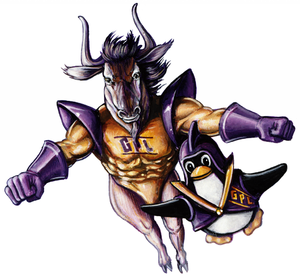Linux naming controversy: Difference between revisions
imported>Joshua David Williams (added image) |
imported>Joshua David Williams m (GNU/Linux controversy moved to GNU/Linux naming controversy: GNU/Linux /naming/ controversy is more accurate) |
Revision as of 20:42, 1 May 2007
The GNU/Linux naming controversy is a dispute between the Free Software Foundation (FSF) and various Linux-supporting groups over the naming of operating systems that are based on the Linux kernel and use GNU utilities. The FSF maintains that because the systems depend upon many GNU programs to fill the roles of non-free UNIX programs, the name "GNU/Linux" should be used. On the other hand, Linux advocates and many distributors prefer to call the OS "Linux" after the kernel for simplicity.
History
The origin of this argument began in 1984, when The Free Software Foundation, founded by Dr. Richard Stallman, set out on an attempt to create a free Unix-like operating system called the GNU system, which is a recursive acronym for GNU's Not Unix.[1] They began with the basic necessary tools for the system, such as a compiler (gcc), a C library (glibc), a debugger (gdb), and a text editor (emacs). Their plan was to create all the tools necessary for an operating system, culminating with a kernel (the Hurd) to place beneath the tools that they had created.
The team of developers of this kernel chose to base their architecture on a Mach microkernel design, which they thought would be superior to monolithic kernels, but turned out to be too complex to create quickly. In hindsight, this ambition would cause GNU to lose their monopoly on the burgeoning free Unix scene. Due to the complex structure of this new type of kernel, it took developers an extremely long time to get a workable release, compared to monolithic kernels that "just worked." As of April 2007, development of the Hurd kernel continues without a stable first release.
In 1991, Linus Torvalds first introduced his kernel, which came to be called Linux. Before Linux, there was no choice but to use non-free kernels, most notably Minix, atop the free GNU utilities and tools. While the GNU kernel began to look more like vaporware every day, the community received Linux with open arms and many began to contribute.
From gnu.org:
"Variants of the GNU operating system, which use the kernel called Linux, are now widely used; though these systems are often referred to as 'Linux', they are more accurately called GNU/Linux systems."
The GNU Project members decided to call 'Linux' GNU/Linux, in order to attribute credit to those who worked hard at creating the tools that the Linux kernel runs. Linus Torvalds, however, has made no effort to hide his thoughts towards this naming convention, saying that "calling Linux in general just 'GNU/Linux' I think is ridiculous."[2]
Today, systems based on the Linux kernel are commonly referred to as Linux, with the notable exception of the Debian GNU/Linux distribution.[3] The topic continues to be a controversial subject to this day.
References
- ↑ About the GNU Project (Retreived 06 April 2007).
- ↑ The "GNU/Linux" and "Linux" Controversy (Retrieved April 6th, 2007).
- ↑ Debian GNU/Linux distribution (Retrieved April 12th, 2007).
